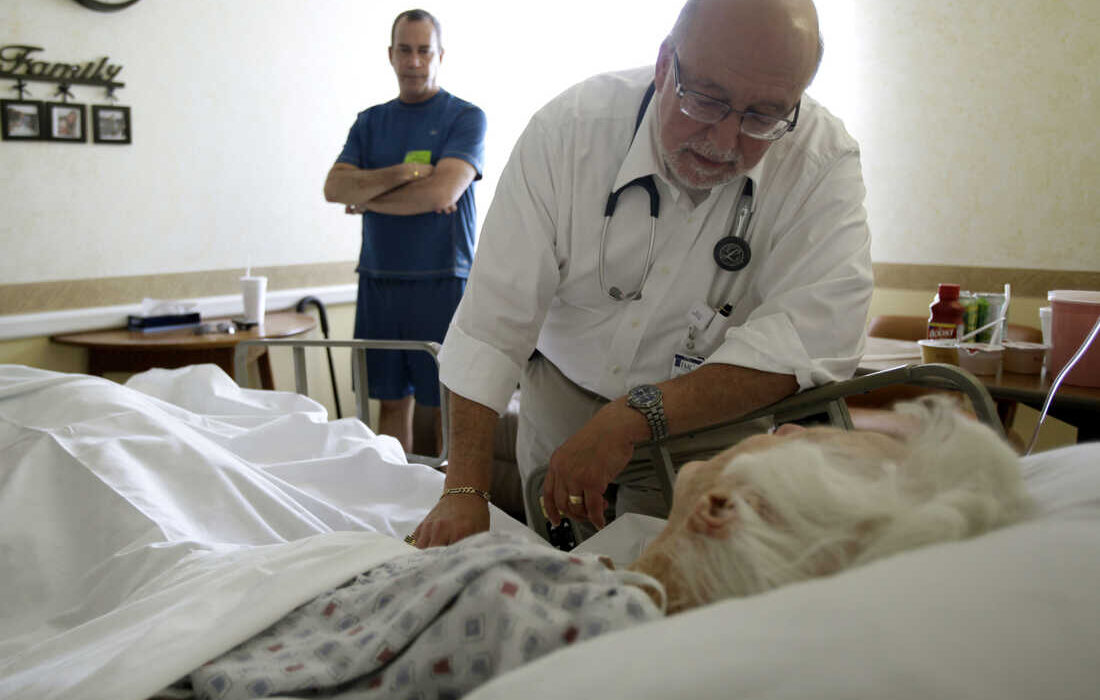Canada’s Medical Assistance in Dying (MAID) program has sparked debates and raised ethical questions around patients’ rights to choose when and how they want to end their lives. The story of Paula Ritchie sheds light on this complex issue, challenging traditional notions of end-of-life care.
Paula’s Struggle for a Dignified Exit
Imagine a room with brown linoleum floors, an old TV, and a window overlooking garbage bins. This was where Paula Ritchie, at 52, lay on a big bed surrounded by the mundane artifacts of life. Her face, pale and unblemished, mirrored the pain she endured daily. Her dark hair cascaded around her like a shroud as she recounted her agony to doctors assessing her eligibility for MAID.
In tears, Paula confessed that living had become unbearable. “I cannot get through a day,” she lamented. The physical torment was pushing her to seek an end she deemed more merciful than suicide.
The Compassionate Dilemma
Dr. Matt Wonnacott faced a moral quandary as he sat at the foot of Paula’s bed during the assessment process. His role as primary assessor meant he had to navigate the fine line between compassion and ethical boundaries in determining Paula’s fate.
Paula’s relentless pursuit of euthanasia painted a portrait of desperation. Despite being deemed ineligible initially, she persisted in seeking relief from her suffering through MAID evaluations. Her anguish was palpable; every hour seemed like an eternity until another chance for assessment arose.
Ethical Debates: Kindness or Cruelty?
The discourse surrounding medically assisted death without terminal illness constraints is entangled in moral complexities. Critics question if granting patients like Paula the right to choose death is an act of kindness or a slippery slope towards endorsing suicide.
As clinicians, ethicists, lawyers, advocates, and patients engage in heated discussions about MAID protocols, one central question looms large: Where do we draw the line between respecting individual autonomy and safeguarding against potential abuses of such liberties?
Expert Insights: Balancing Autonomy and Safeguards
Medical ethics experts emphasize the importance of striking a delicate balance between honoring patients’ autonomy and implementing robust safeguards within MAID frameworks. Driven by compassion for those enduring unbearable suffering, advocates push for broader access to peaceful exits regardless of terminal diagnoses.
However, concerns persist regarding vulnerable individuals who may feel pressured into choosing death over life due to societal factors or inadequate support systems. Safeguards must be stringent yet flexible enough to accommodate diverse patient needs while preventing any potential exploitation.
In conclusion,
the narrative of Paula Ritchie underscores the inherent complexity
of end-of-life decision-making outside conventional norms.
While debates rage on about extending MAID provisions
to non-terminal cases,
it is clear that each plea for compassionate endings
poses profound ethical dilemmas that demand nuanced deliberation.
As society grapples with evolving views on death,
the challenge lies in finding solutions that uphold dignity
without compromising fundamental human values.

